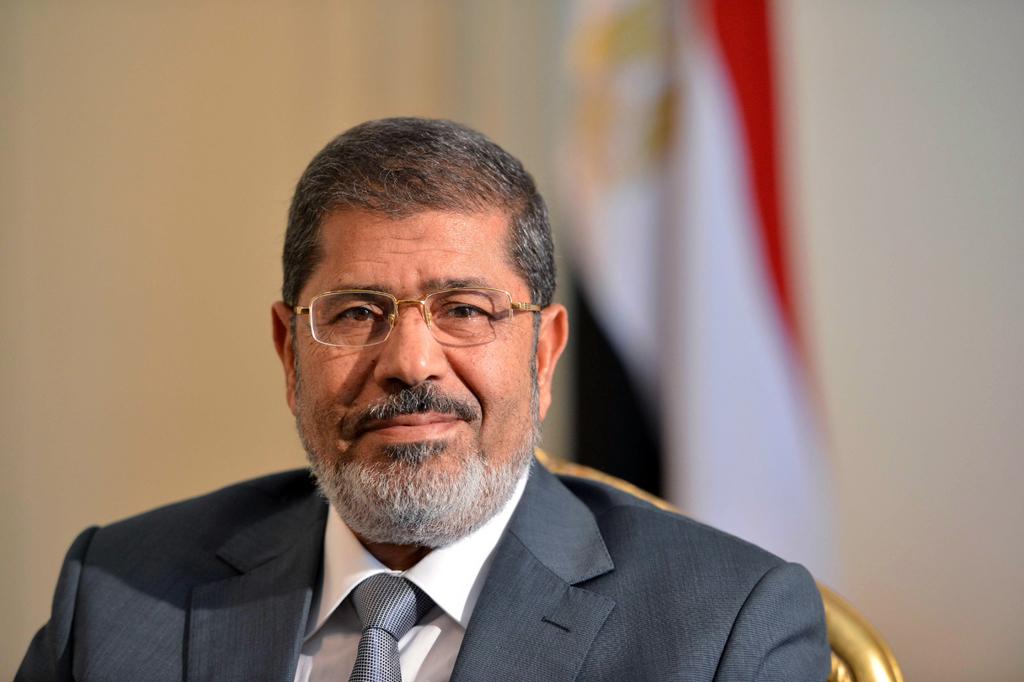Obama invites Mursi, Egypt’s Islamist leader, to U.S.
Egyptian President Mohamed Morsi in Cairo, Egypt on July 8, 2012.
EGYPT, Cairo – President Barack Obama has invited Egypt's newly elected Islamist president, Mohamed Mursi, to visit the United States in September, an Egyptian official said on Sunday, reflecting the new ties Washington is cultivating with the region's Islamists.
Washington, long wary of Islamists and an ally of ousted President Hosni Mubarak, shifted policy last year to open formal contacts with the Muslim Brotherhood, the group behind Mursi's win. Mursi formally resigned from the group after his victory.
Mursi's success at the polls mirrors the rising influence of Islamists in countries across the Middle East and North Africa in the wake of revolts and protests against autocratic rulers who have led the region for decades.
"President Obama extended an invitation to President Mursi to visit the United States when he attends the U.N. General Assembly in September," Egyptian aide Yasser Ali said after Mursi met U.S. Deputy Secretary of State William Burns in Cairo.
Burns, who did not mention the invitation at a news conference earlier, pledged U.S. support for Egypt's battered economy and said he welcomed Mursi's promise to uphold international treaties, which include a peace deal with Israel.
"We have taken careful note and appreciated President Mursi's public statements about a commitment to international obligations and we certainly attach great importance to Egypt's continuing role as a force for peace," Burns said.
Israel has watched with growing concern the political gains of the Brotherhood, an inspiration for the Palestinian militant group Hamas. The 84-year-old Brotherhood renounced violence as a means to achieve political change in Egypt decades ago.
Analysts say that one way the United States could influence the direction of policy in Egypt, a nation at the heart of Washington's regional policy since a peace treaty was signed with Israel in 1979, would be through economic support.
Washington provides $1.3 billion a year in military aid as well as other assistance and could help mobilise other donors, lenders and investors. Those could prove vital as Egypt tries to stave off a balance of payments and budget crisis.
"The United States is firmly committed to doing everything that we can to support Egypt's economic revival. We understand the challenges that lie ahead and also the president does," Burns told reporters after his two-hour meeting with Mursi.
Burns, whose trip precedes a visit to Egypt on July 14 by U.S. Secretary of State Hillary Clinton, said he had discussed a $3.2 billion loan package that Cairo has been negotiating with the International Monetary Fund.
"We talked in general terms about the value of moving ahead with the IMF in the interest of Egypt, trying to work out an equitable agreement that addresses Egypt's concerns and needs," he said.
He said the IMF package "can produce not only much needed resources but also sends an important positive signal to investors and donors and Egyptians as they move ahead on economic revival."
(Reporting by Marwa Awad; Writing by Edmund Blair; Editing by Tim Pearce)
Our coverage reaches millions each week, but only a small fraction of listeners contribute to sustain our program. We still need 224 more people to donate $100 or $10/monthly to unlock our $67,000 match. Will you help us get there today?
